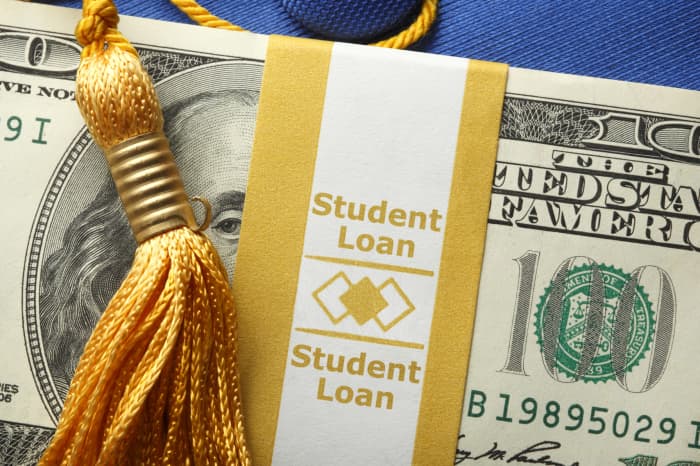‘It doesn’t seem fair’: I have $131K in student loans and can’t afford my life, despite making $110K a year. How to get out of student-loan debt faster

Student loan debt now tops $1.7 trillion. So when we received the following letter from a borrower deep in student loan debt, we wanted financial pros to help — as the debt repayment strategies for her are similar to what many borrowers tackling their loans may want to consider too, from possible loan forgiveness, to smart budgeting, to refinancing (see the lowest fixed student loan refinance rates you can qualify for here). Here’s her question, and what financial pros think she, and you, should do to reduce student loan debt.
Question: I’m now 39, and in a better place in my life than I was roughly 10 years ago, when I decided to take out over $100,000 in student loans to attend a food policy and nutrition master’s program. The program was the only master’s program I got into, and I didn’t care what the cost was — I didn’t even look at what I was signing.
Now, in total, between my undergrad and grad loans, I owe $131,000. Some of the loans are federal and some of them private; one of those companies charges an interest rate of 6%. Though most of my loans are on pause now (thanks to the federal government), I’m worried about what will happen when that stops. The loan payments are too expensive, even though I’m now a nutrition and public health consultant who works on a contractual basis, and I make a good salary — $110,000 a year.
But our mortgage costs $1,100 a month; daycare is about the same, and car payments are $400. Otherwise, I feel we live very frugally: We even bathe our son in a Tupperware tub because our bathroom needs to be renovated, but we don’t have the money for it! We can’t even afford, as it is, to contribute to retirement or pay for some much-needed dental work. I honestly don’t know what we are going to do when my loans become unfrozen. How can I get out of debt faster? — Erin
Have a question about getting out of student loan or other debt? Email [email protected].
Answer: First up, you’re not alone in feeling overwhelmed by student loan debt, and you’re doing some things right, like “limiting the mortgage and the car loan,” which are both “well within your range for your income level,” says Mitchell C. Hockenbury, a certified financial planner at 1440 Financial Partners in Kansas City. But, Hockenbury says, with your low mortgage and other seemingly reasonable expenses, you should see if there is more money to put towards debt payments. Even if there’s not, once the daycare stops, you will have that money to more aggressively pay down debts.
The next question is whether to refinance loans to save money. But first, consider that right now your federal loan payments are on pause through May 2022, and that you should be careful about refinancing a federal loan into a private loan as you will lose some of the federal loan protections, such as income-based repayment and forgiveness options. (You can get details on how much a refinance could save you here). But Ethan Miller, the founder of Washington, D.C.-based financial planning firm Planning for Progress, says Erin should likely refinance some of her private loans, as rates are pretty low right now (see the lowest fixed student loan refinance rates you can qualify for here). “If you feel confident in your income, and you know you’ll have a job for many years, this is the best option,” says Miller.
There are other options as well, says Hockenbury: “Is there a possibility to take a cash-out refi? Interest rates are low, housing prices have soared. Perhaps she could use the cash to pay down some debt,” he says. Though, of course, she needs to be sure she can repay that or she risks losing her house.
Though for some borrowers, student loan forgiveness may be an option, it does not sound like Erin would qualify for a loan forgiveness program like the Public Student Loan Forgiveness Program, as she’s a contractor at a government agency, not a full-time employee, explains Miller. (See details on loan forgiveness, cancellation and discharge here to see if you might qualify.) But if she looks at her budget, she may find extra money to pay down her debt faster; refinancing at least some of her loans at today’s low rates could make the payments more manageable, and a cash-out refi on her home may be another option. Best of luck, Erin!
*Questions edited for brevity and clarity.




